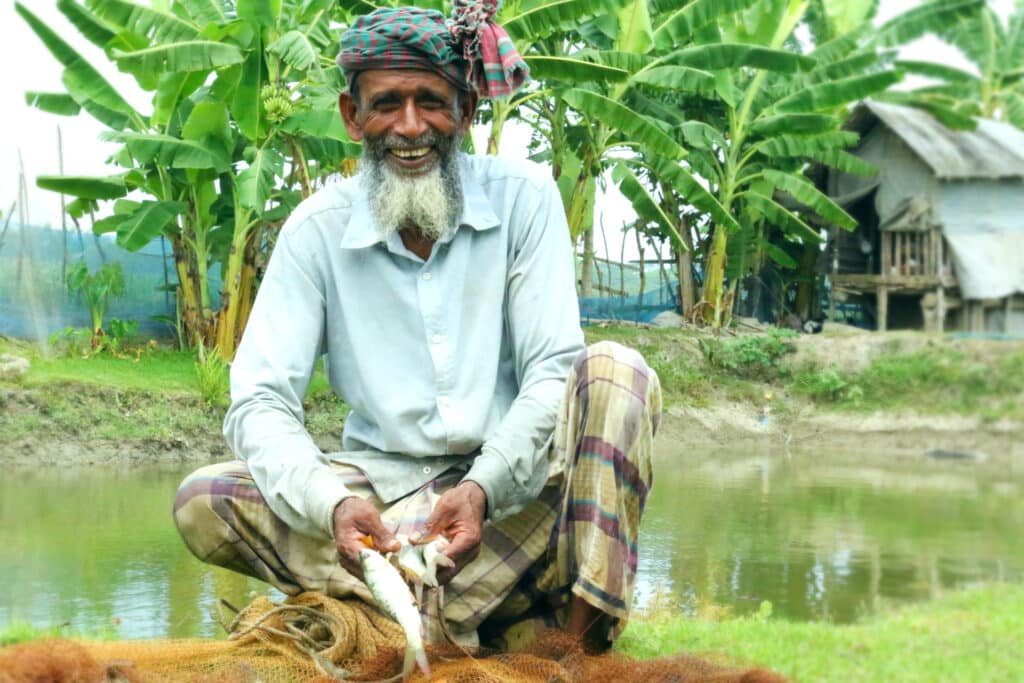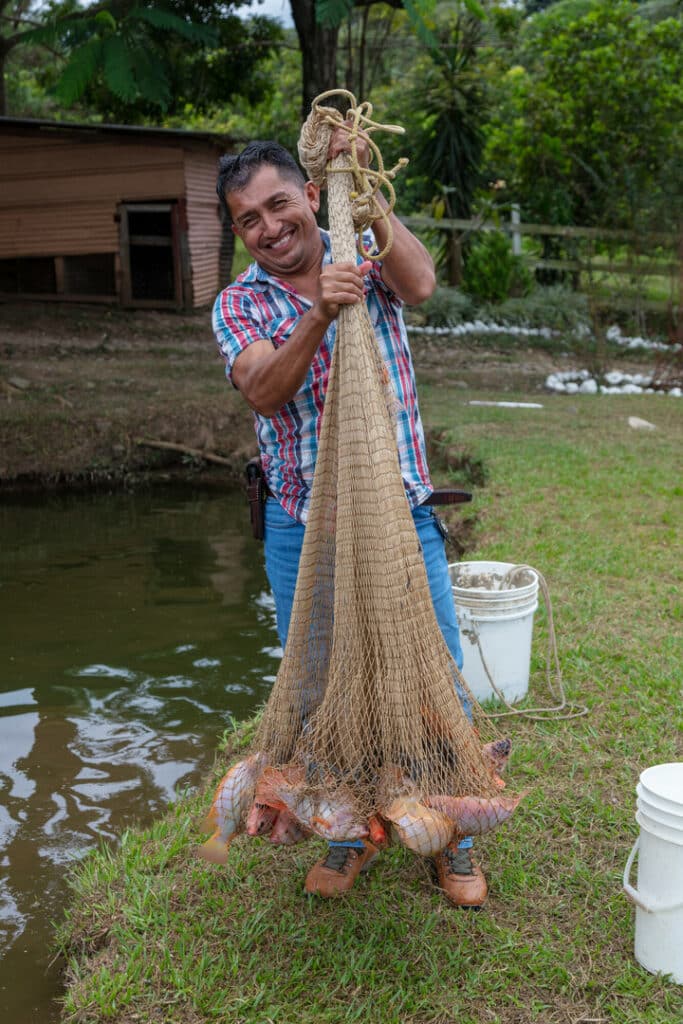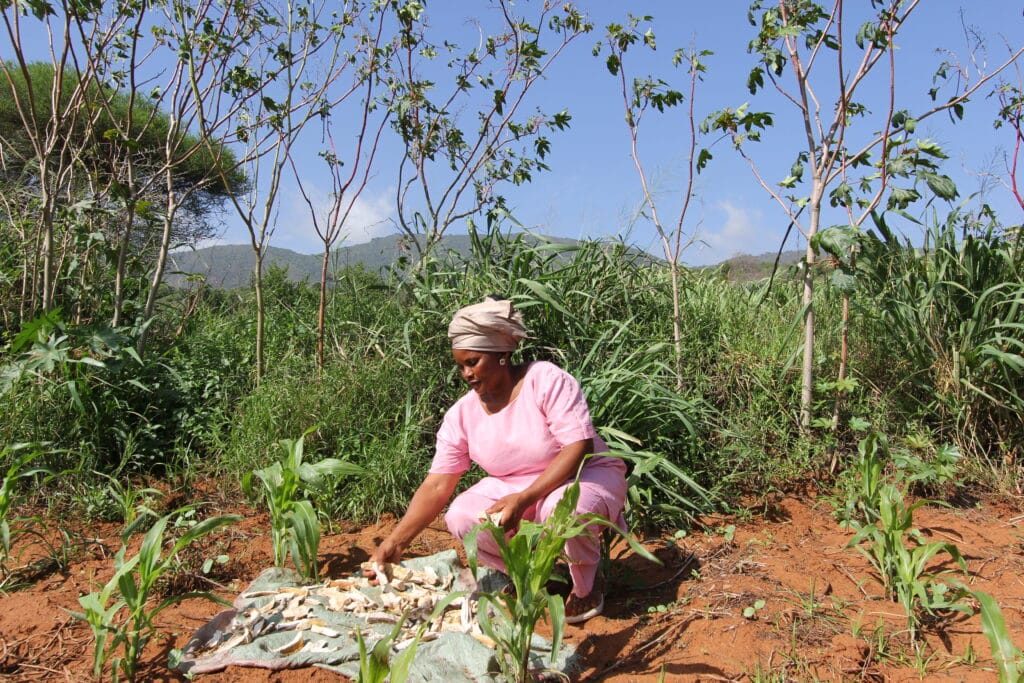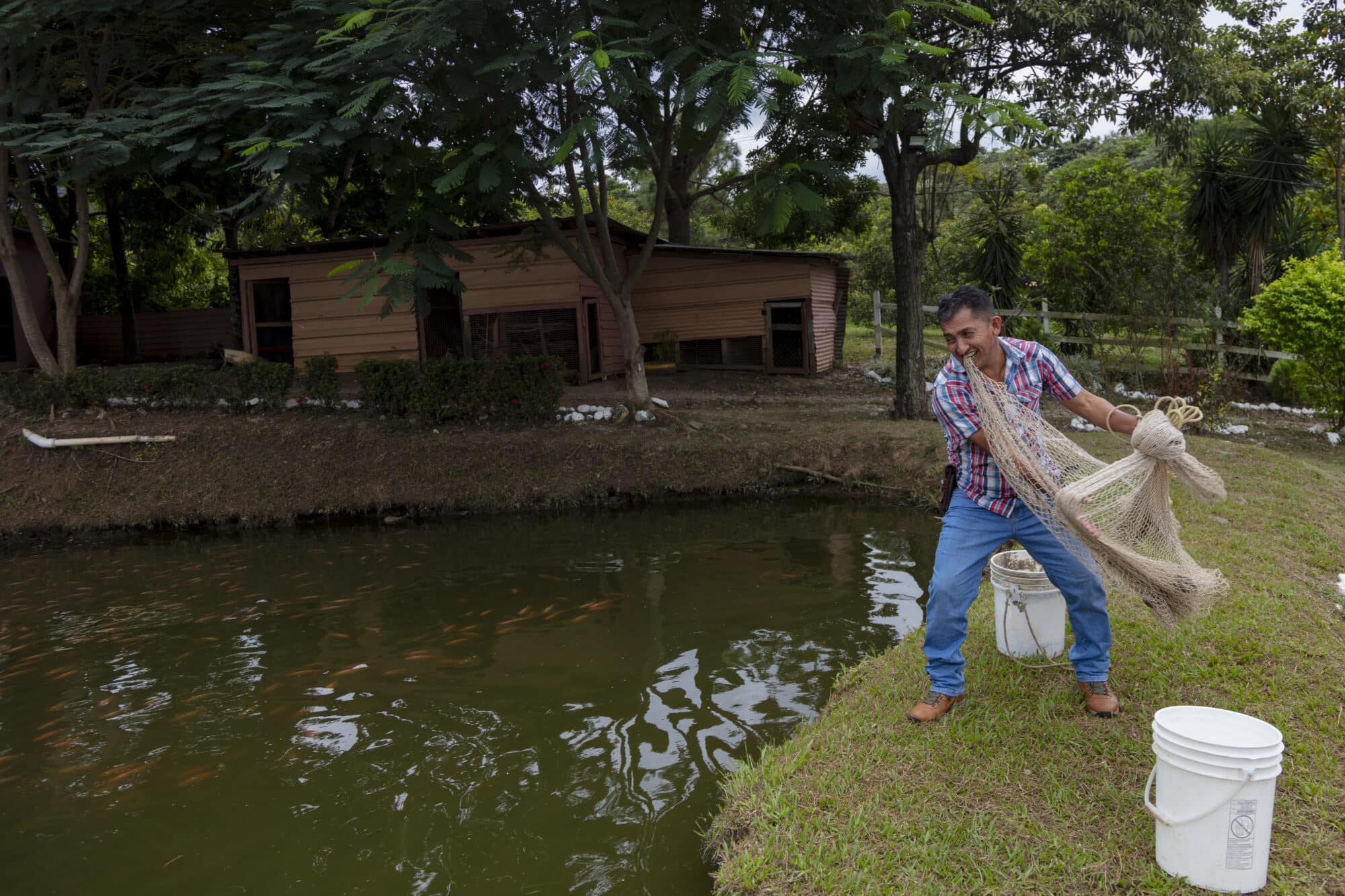Reeling in the benefits— How fisher-led learning can deliver resilient futures for both people and nature
Small-scale fisheries are a lifeline for millions around the world—crucial to food security, nutrition, and poverty reduction—yet they face mounting ecological and economic pressures. Recognizing this, CARE, in collaboration with WWF, Rare Fish Forever, and local partner ACCORD, has developed a fisher-led Farmer Field and Business School (FFBS) module tailored to the needs of fishing communities. Now set to pilot in the Philippines, this participatory approach draws on successful agricultural models to promote sustainable practices, integrate traditional knowledge, and strengthen local governance—laying the foundation for more resilient fisheries and communities.

© 2024 Sadia Anjum Hossain / CARE
Context. Small-scale fisheries are a cornerstone of global food systems, supporting the nutrition, income, and well-being of 500 million people and playing a critical role in reducing poverty. They produce 40 percent of the global catch and include individuals engaged in both subsistence fishing and commercial activities across the entire value chain, including harvesting, processing, and trade. Four in every ten people engaged in small-scale fisheries through direct employment or subsistence fishing are women.
Challenges. Fisher communities face extensive challenges – from restricted access to resources, to climate change, to biodiversity loss, to poor market access, and more. They are highly vulnerable to watershed and coastal ecosystem changes and to extreme weather events. This is a worrying reality considering that fish is an important source of protein and other micronutrients for around 3.3 billion people, particularly those living in low and middle-income nations. Women in fishing communities are subject to various degrees of exclusion in terms of access to and control over productive resources, services, employment opportunities, and participation in decision-making.
Efforts. Various fishery management strategies have attempted to improve the sustainability of fisheries – such as rights-based fishery management, market-based instruments such as eco-labels, or supply chain-driven approaches that involve technologies. Many fishery management solutions aim to improve fish stocks or marine or terrestrial ecosystems but pay little attention to improving the socio-economic conditions of fishers through equitable distribution of values. Nutrition has had a low profile in, and climate policies lack attention to blue and aquatic foods.
Questions. What if there were a model that engages fishers based on their capacities and their resourcefulness rather than addressing only one distinct problem at a time? And what if this model took deliberate actions to ensure women and marginalized groups were engaged and their indigenous knowledge applied? Finally, what if the model simultaneously addressed climate change and ecosystem risks, market access barriers, and nutrition-related challenges?

Innovation. A fisher-led extension model, where fishers themselves identify the risks and vulnerabilities that they face and define the capacities and assets they already possess to address these risks, is a way forward. When adult learning happens in groups, social, economic, and ecological capital can accrue. Small-scale food producers across the world have been learning from each other and adopting good practices for centuries and with a minimal level of structure and support, good practices can be adapted, adopted, and scaled.
Participation. Participatory processes and platforms in extension are critical because they ensure that development efforts are locally relevant, inclusive, and sustainable. They engage community members in identifying problems and priorities and implementing solutions – rather than having decisions prescribed. Working with multiple partners through a process of participatory learning, CARE has been applying a Farmer Field and Business School (FFBS) model in 41 countries. Integrating climate vulnerability and capacity analysis (also identifying ecosystem-based risks), and carrying out market system and social analyses, the model provides a holistic understanding of challenges for small-scale farmers, pastoralists and fishers.
Evidence. The model engages groups in a structured curriculum that addresses risks and opportunities in production, market engagement and enterprise development (including access to savings and loans), advancing the leadership of women, and nutrition. Evidence suggests positive impact across several indicators, including, for example;
- Return on Investment: a Social Cost Benefit Analysis showed that FFBS had a US$31 return for every US$1 invested – across women’s empowerment, food security, and income indicators.
- Women’s Empowerment: a further Cost Benefit Analysis in Burundi demonstrated significant positive changes in perceptions of domestic violence – where the number of men declaring violence as unacceptable increased by 110 percentage points.
- Food Security and Nutrition: in the same project, FFBS participants had the highest proportion of households within acceptable food consumption scores (FCS), compared to other groups.
- Income: in a multi-country project, FFBS participants experienced significant increases in monthly per capita household income – rising from US$3.41 to US$9.90 in Ghana and from US$11.60 to US$17.38 in Malawi.
- Climate Resilience: A study in Tanzania demonstrated that FFBS, when combined with village-level savings groups, increases the capacities of communities to adapt to climate change and evidence from Malawi underscores climate resilience benefits of farmer-led learning.

Scaling through learning with fishers. CARE, with technical inputs from partners WWF, Rare Fish Forever, and local partner ACCORD, has completed the development of a fisher-based FFBS module and will now pilot this among fisher communities in the Philippines. Local government authorities and communities have been engaged in analysis and consultation with the aim of bringing the success of FFBS to fishing communities.
Learning from working with farmers that is potentially transferable to work with fishers includes
- Identifying climate change risks with producers increases capacities to anticipate impacts and allows better planning for adaptation.
- Participatory approaches facilitate the transfer and use of indigenous knowledge and enables producers and extension agents to adjust practices as market or climate conditions change.
- Diversifying production practices and supporting microenterprises increases livelihood opportunities, especially for women.
- Engaging ministries and the private sector stimulates market linkages and ensures that context-specific issues (e.g., species decline or post-harvest losses) are addressed.
- Supporting the skills, leadership, and problem-solving abilities of small-scale food producers helps them to manage their resources more effectively.
- Increasing interaction helps mediate conflicts over resource use by building trust, transparency, and mutual understanding among stakeholders.
- Building evidence of impact leads to the development of integrated, system-oriented policies and enables the emergence of community leaders.
The future. By refining and scaling this model with communities across small-scale fisheries, we can bring lessons and successes from terrestrial agriculture that have delivered multiple benefits. In short, a participatory fisher-led school approach can strengthen the ecological, social, and economic foundations of small-scale fisheries management. Promoting sustainable practices, integrating traditional knowledge, facilitating inclusive governance, and addressing socioeconomic challenges contribute to the resilient futures of fishing communities and fisheries resources.
Written by:
- Karl Deering, Senior Director, Resilient Futures, CARE USA
- Shashank Bibhu, Program Manager, Scaling up FFBS Global Program, CARE USA
